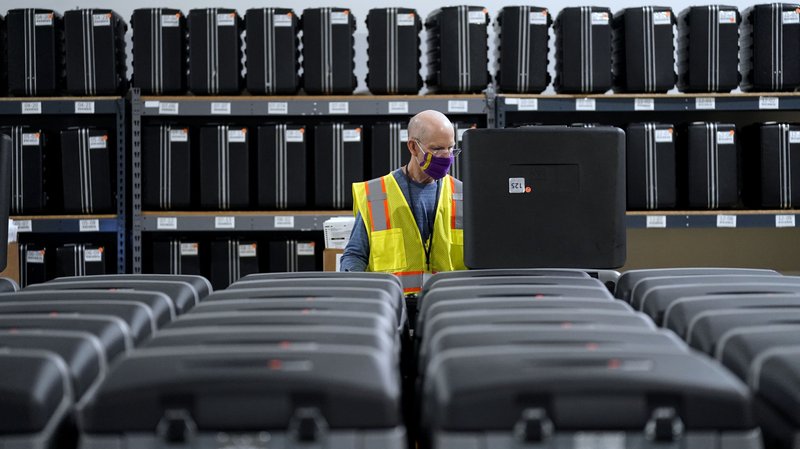
RALEIGH, N.C. (AP) — Early in-person voting begins Thursday in North Carolina, where the historically popular form of casting ballots has been upstaged so far this fall by people seeking to vote by mail due to the COVID-19 pandemic.
The high stakes on the ballot in the presidential battleground state likely will draw crowds to early-vote locations that open in all 100 counties Thursday morning. Exemplifying the critical importance of this wave of voting, President Donald Trump planned to hold a rally Thursday afternoon in Greenville, while Democratic vice presidential nominee Kamala Harris prepared for appearances in Charlotte and Asheville.
The early-vote option, which continues until Oct. 31, allows someone to vote at any voting center in their county of residence. People can also register to vote and cast a ballot at the same time during the early-vote period.
More than 60% of the total ballots cast during the 2016 presidential election in North Carolina were cast through early in-person voting, or nearly 3 million votes. That percentage is likely to drop in 2020 as more 500,000 absentee ballots have been turned in so far — 10 times more than had been cast by mail at this point in the 2016 election.
Mail-in ballots have been preferred by those at higher-risk for severe illness from the coronavirus and those who want to avoid long lines. These absentee ballots also can be dropped off at early-vote sites.
State and county election officials have been preparing for months for in-person voting, accumulating personal protective equipment for poll workers and voters. Voters are encouraged but not required to wear masks. In many locations, the “I Voted” stickers usually handed out will be replaced with single-use pens that voters can take home once they fill out their ballot.
In addition to the presidential race, voters are choosing between Republican Sen. Thom Tillis and Democratic challenger Cal Cunningham and between Democratic Gov. Roy Cooper and Republican rival Dan Forest, the current lieutenant governor. All 13 U.S. House and 170 General Assembly seats are up for reelection, as are several other statewide elected positions on the Council of State and the appellate courts.